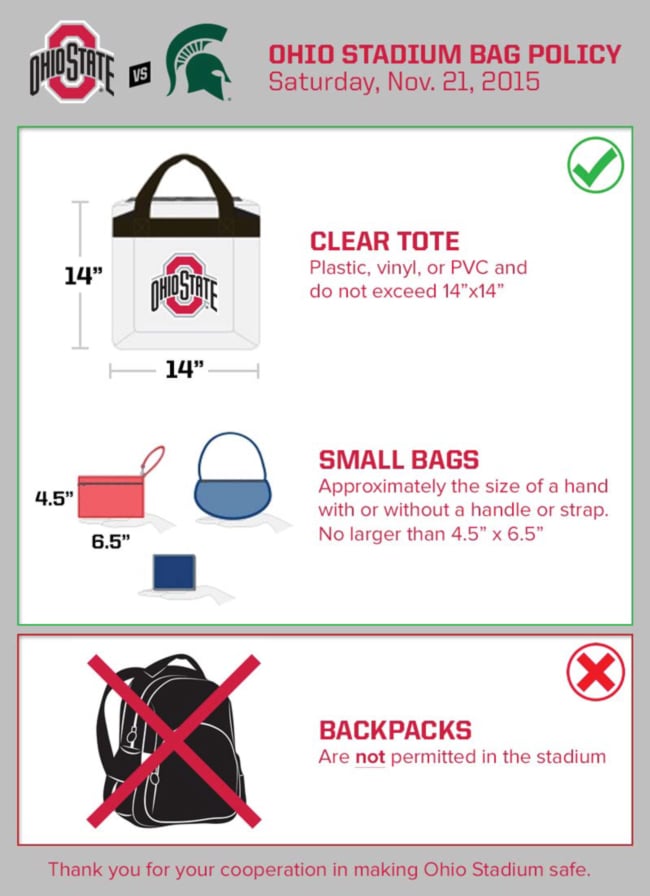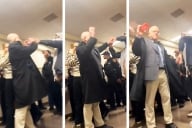You have /5 articles left.
Sign up for a free account or log in.
The terrorist attacks in Paris last month were the deadliest attacks in France since World War II, killing 130 people and injuring nearly 370 others. Three of the suicide bombings occurred near the country’s national sports stadium, the Stade de France, where a security guard prevented a much larger tragedy by discovering a bomber’s suicide vest when the attacker tried to enter the stadium.
More than 5,000 miles away, the University of Arizona -- which was preparing for a weekend of large sporting events, including the season openers of its men’s and women’s basketball teams and its football team's final home game of the year -- started hearing from concerned fans. Though the university did not receive any threats, fans were rattled by the rampage in Paris.
“Some members of our fan base inquired and wondered what enhancements would be in place,” Suzy Mason, senior associate athletic director of event operations at the university, said. “They were asking how they could attend events and feel safer.”
In response, Arizona announced last week that it was adopting a number of changes to how it will handle security at sporting events. Arizona joins a growing list of institutions increasing security efforts at its stadiums and arenas following the attacks in Paris and recent mass shootings in the United States.
At Arizona, fans can no longer bring large purses, tote bags, diaper bags, fanny packs, briefcases, computer bags, camera bags, backpacks, luggage, cooler bags or golf umbrellas to games. The list of approved bags is short: small clutches, one-gallon freezer bags and clear plastic bags no larger than 12 by 12 by 6 inches. The university is also banning large seat cushions that have covers.
Mason said many of the changes -- which are already commonplace in National Football League stadiums -- were being discussed before the Paris attacks, but the Nov. 13 attacks and the shooting in San Bernardino last week quickened the process. The response from fans has been mixed, she said.
“It’s exactly what we expected,” Mason said. “We’ve received approximately 100 calls and emails since announcing the policy adjustments. About 60 percent of the comments are supportive, but disappointed that it has to be this way. The other 40 percent are threatening to give up their tickets. We’re still working through some of the nuances addressing that.”
The university made similar security adjustments in the weeks after the terrorist attacks on Sept. 11, 2001. Over the years, the university relaxed those policies. Mason that said this time, however, the changes might just be “the new reality” of an Arizona game day experience. The changes will first take effect on Dec. 9, for the men’s basketball game at the university’s McKale Center. Half of the arena’s exits will remain closed during the game.

Last month, Ohio State University and the University of Minnesota announced similar changes for their sporting events, requiring any large bags to be of the clear plastic variety. Security has also been increased at sporting events at the Universities of Iowa, Maryland, Nebraska at Lincoln and Tennessee at Knoxville; Clemson, North Carolina State, Pennsylvania State and Texas Christian Universities; and Virginia Tech.
Those hosting football championship and bowl games have announced stiffer security measures at those stadiums, as well, though many already use NFL-style clear bag policies.
William Taylor, president of the International Association of Campus Law Enforcement Administrators and chief of police at San Jacinto College, said he’s “pleased to see institutions taking a proactive approach.” While the Federal Bureau of Investigation says no university stadiums have been recently targeted, more than a dozen institutions were targeted by threats of violence last month amid increased anxiety created by the attacks in Paris and campus protests over racism.
College stadiums and arenas, which are packed with tens of thousands of people nearly every week, are “target-rich environments,” Taylor said, and attractive to mass killers.
“We have so many different venues like this in the United States, so a coordinated event could really be problematic,” Taylor said. “Every institution has to take care of its own facilities and its own venues, and hope that they are never a part of something like that. With everything that's happened this fall, it's logical that folks are rethinking how they’re doing things.”








